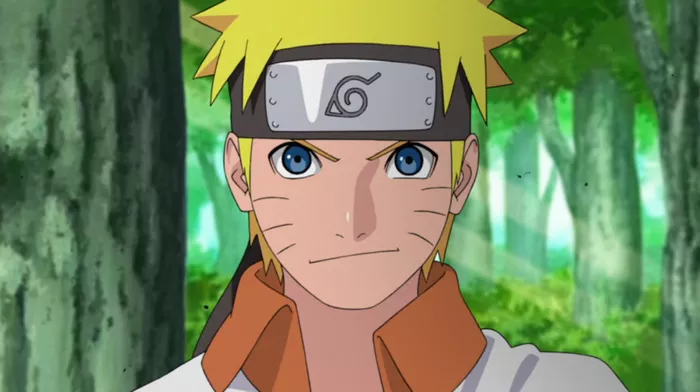The transition from hero to villain is a recurring theme in storytelling, captivating audiences with its complexity and intrigue. In the case of Boruto Uzumaki, the titular character of the popular anime and manga series “Boruto: Naruto Next Generations,” his descent into darkness has sparked intense speculation and debate among fans. In this article, we delve into the multifaceted factors that contributed to Boruto’s transformation into a formidable antagonist, exploring the psychological, narrative, and thematic elements at play.
The Rise of Boruto: From Prodigy to Pariah
Boruto Uzumaki emerged as a central figure in the Naruto universe, inheriting the legacy of his father, Naruto Uzumaki, the Seventh Hokage of the Hidden Leaf Village. As the protagonist of “Boruto: Naruto Next Generations,” Boruto initially embodied the traits of a classic hero: courageous, determined, and fiercely loyal to his friends and family. However, as the series progressed, cracks began to surface in Boruto’s façade, foreshadowing a darker path ahead.
The Catalyst: Trauma and Emotional Turmoil
One of the primary catalysts for Boruto’s descent into darkness is the trauma and emotional turmoil he experiences throughout the series. From a young age, Boruto grapples with the weight of living up to his father’s legacy while struggling to forge his own identity. The pressure to surpass Naruto’s achievements and expectations weighs heavily on Boruto, fueling feelings of inadequacy and resentment.
1. The Absence of a Father Figure
Despite Naruto’s status as Hokage, his demanding responsibilities often leave him with little time for his family, including Boruto. The absence of a strong father figure leaves a void in Boruto’s life, exacerbating his feelings of abandonment and neglect. This lack of paternal guidance contributes to Boruto’s sense of isolation and alienation, pushing him further down a path of self-destruction.
2. Betrayal and Broken Bonds
Throughout his journey, Boruto experiences betrayal and broken bonds that shatter his trust in others and deepen his emotional scars. From the revelation of his mentor’s true identity to the tragic fate of a close friend, each betrayal erodes Boruto’s faith in the inherent goodness of humanity, paving the way for his descent into darkness.
The Temptation of Power: Embracing the Dark Side
As Boruto grapples with his inner demons, he is confronted with the temptation of power—a seductive force that promises to fulfill his deepest desires and vanquish his enemies. Whether through forbidden techniques, dark alliances, or acts of vengeance, Boruto becomes increasingly entangled in a web of darkness that threatens to consume him entirely.
1. The allure of Forbidden Techniques
In his quest for strength and recognition, Boruto delves into forbidden techniques and dark arts that promise to unleash his full potential. Despite warnings from his mentors and loved ones, Boruto succumbs to the allure of power, risking his soul in exchange for temporary supremacy.
2. Corrupting Influence of Dark Alliances
As Boruto’s thirst for power intensifies, he becomes susceptible to the influence of malevolent forces that seek to exploit his vulnerabilities for their own gain. Whether through manipulation, coercion, or promises of power, these dark alliances ensnare Boruto in a web of deceit and treachery, leading him further down the path of villainy.
The Breaking Point: Crossing the Moral Event Horizon
At a certain juncture in Boruto’s journey, he reaches a critical juncture—a breaking point where he crosses the moral event horizon, committing acts of unforgivable darkness that irrevocably alter the course of his destiny. Whether through a moment of desperation, a lapse in judgment, or a calculated choice, Boruto’s actions mark a point of no return, sealing his fate as a villain.
1. Sacrificing Morality for Victory
In his relentless pursuit of victory, Boruto sacrifices his morality and integrity, resorting to ruthless tactics and Machiavellian schemes to achieve his goals. Whether through manipulation, deception, or outright betrayal, Boruto abandons the principles that once defined him, embracing the darkness within to secure his dominance.
2. Embracing the Role of Antagonist
As Boruto’s transformation into a villain reaches its apex, he fully embraces the role of antagonist, embracing his newfound power and embracing his destiny as a force of chaos and destruction. Whether driven by vengeance, ambition, or a twisted sense of justice, Boruto becomes the very thing he once swore to oppose, heralding a new era of darkness and despair.
Conclusion: The Tragic Tale of Boruto’s Descent into Darkness
The story of Boruto Uzumaki is a cautionary tale of the perils of power, pride, and the relentless pursuit of perfection. From his humble beginnings as a prodigious ninja to his tragic fall from grace as a formidable antagonist, Boruto’s journey is a testament to the complexities of human nature and the fragile line between heroism and villainy.
As fans continue to speculate and theorize about Boruto’s ultimate fate, one thing remains clear: his transformation into darkness is a poignant reminder of the inherent struggle between light and shadow that resides within us all. Whether redemption awaits him in the end or if he is forever destined to walk the path of villainy, Boruto’s legacy will endure as a testament to the enduring power of storytelling and the indomitable spirit of the human psyche.

